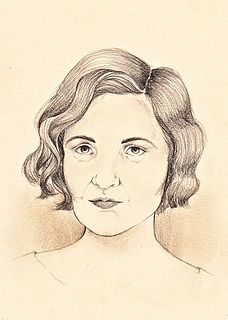A Quote by Olivia Newton-John
I took you to an intimate restaurant, then to a suggestive movie. There's nothing left to talk about, unless it's horizontally.
Related Quotes
If the movie is terrible you can have fun. You can joke about it and have a ball. The movie is already sort of established as a kind of extraordinary piece of work even though it hasn't opened yet to the public. It is harder because you can't go against it and you can't be interesting. You have to go with the flow. Although one is very happy to be in it, it is sort of hard to talk about it. It is hard to talk about successful. It is much easier to talk about failure.
Like most writers, we like to find what we know and pass it along to anyone who cares. When that's done, as soon as we've said the best we can say, there's nothing else about us that's remotely interesting to anybody else, and we go back behind the walls. We can be intimate in books, we can be intimate in talks, but then we need time to be alone.
When I was 11 or 12 - a young boy in Japan - one of my older brothers took me to a sushi restaurant. I had never been to one, and it was very memorable. Back then, sushi was expensive and hard to come by, not like today, when there's a sushi restaurant on every street corner and you can buy it in supermarkets.
First they arrested the Communists - but I was not a Communist, so I did nothing. Then they came for the Social Democrats - but was not a Social Democrat, so I did nothing. Then they arrested the trade unionists - and I did nothing because I was not one. And then they came for the Jews and then the Catholics, but I was neither a Jew nor a Catholic and I did nothing. At last they came and arrested me - and there was no one left to do anything about it.
People who have left the group talk about how a religious inspiration took them to ISIS. It was their feeling of being marginalized as Muslims in the society where they were living, and then buying into the promise of a caliphate and of a Muslim land that is governed as in the time of the prophet. I have yet to meet anybody, or speak to anybody, who was not religiously motivated at some level.



































